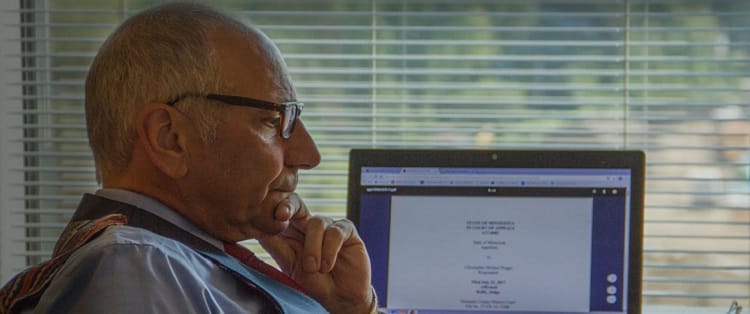It is well-settled law that the remedy for illegally obtained evidence is suppression of that evidence. The bedrock principal of law was cracked significantly by the United States Supreme court on June 20th. Justice Clarence Thomas writing for the majority further eroded citizens’ Fourth Amendment rights when the court decided the case of Utah v. Strieff.
The Case
In that case police received a tip about possible drug activity at a house and set up surveillance. The defendant left the house and was stopped by police in apparent violation of his rights that require that police have a reasonable suspicion of criminal activity. In the course of the encounter police learned that the man had an outstanding warrant for a traffic violation. Following that revelation, the man was searched and methamphetamine was found. At trial, the defendant moved to suppress the methamphetamine arguing it was the product of an illegal investigatory stop. The Utah Supreme Court agreed.
The Supreme Court Decision
The United States Supreme Court reversed the Utah Supreme Court. Justice Thomas wrote the opinion. He found that there was no “flagrant police misconduct” and reasoned the officer’s discovery of a valid arrest warrant “attenuated the connection between the unconstitutional investigatory stop and the evidence seized incident to a lawful arrest.”
The Dissent
In a scathing dissent Justice Sotomayor warned not to be fooled by the technical language of the majority opinion. Justice Sotomayor pointed out that the police may now stop someone without cause and if one has a warrant for something as trivial as a parking ticket, that individual can be searched and any evidence found will forgive the initial illegal conduct by the police. Justice Sotomayor asserted that this law enforcement technique will be utilized much more frequently where persons of color are involved. She writes, “It is tempting in a case like this, where illegal conduct by an officer uncovers illegal conduct by a civilian, to forgive the officer. But a basic principal lies at the heart of the Fourth Amendment: Two wrongs don’t make a right.”
The end result of the Strieff decision is an erosion of individual liberties which is troubling to many, regardless of political affiliations. Where criminal cases are concerned, the sharp contrast in the views expressed by the various factions of the Court underscore the importance of the court having Justices who-like Justice Sotomayor-are focused on protecting individual liberties. What do you think?
